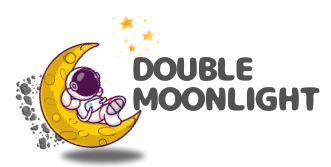Eclipse and Human Behavior: A Study on the 2024 Solar Eclipse

As the moon charts its celestial course, casting a shadow upon the Earth, the phenomenon of a solar eclipse captivates the human imagination. A rare alignment of cosmic bodies, the eclipse isn’t just a spectacle for the eyes but a catalyst for profound human behaviors and experiences. The 2024 solar eclipse offers not only a visual feast but also a unique opportunity to delve into the intricate relationship between such astronomical events and the tapestry of human response. This study seeks to illuminate the myriad ways in which the grandeur of an eclipse influences our actions, emotions, and societal dynamics, shining a light on the ephemeral yet enduring impact of this celestial event on the essence of human nature.
Historical and Cultural Significance of Solar Eclipses
Solar eclipses have long fascinated humans, carrying a weight of wonder and terror that has permeated our shared history. These celestial events have elicited a wealth of human responses, deeply rooted in the cultural fabric of civilizations both ancient and modern.
Historical Events and Eclipses
Remarkably, solar eclipses have also played a role in shaping the course of history. One notable example is the ancient battle between the Medes and the Lydians, which came to an abrupt end due to a total solar eclipse; the combatants took the darkening of the skies as a sign to cease fighting and made peace.
Astrological and Religious Influences
Astrologically, eclipses have often been seen as harbingers of change, omens that herald the need for personal transformation or the beginning of significant life events. The mystical interpretations of eclipses can be found in numerous cultural astrological practices, from Vedic to Western traditions.
In the realm of religion, solar eclipses have been interpreted as divine messages. Christian scripture reportedly references an eclipse during the crucifixion of Jesus. In Islam, eclipses do not hold any predictive power but are viewed as a reminder of human insignificance in the face of divine creation.
Myths, Legends, and Rituals
Eclipses have been powerful elements in human storytelling, featuring prominently in the mythologies of societies across the globe. To the ancient Chinese, an eclipse was the dragon of the sky consuming the sun—a belief that spurred the populace to make loud noises in an attempt to scare off the celestial beast and restore daylight. The Vikings attributed eclipses to wolves chasing the sun, while the Hindu demon Rahu was said to swallow the sun, causing an eclipse.
The impact of these events extended beyond mere narration; they were a call to action. Rituals were often born from the fear and awe that eclipses instilled—some cultures performed sacrifices to appease the gods, others saw these times as powerful moments for healing and reflection. The Batammaliba people in Togo and Benin, for example, used eclipses as a time to mend old feuds, as they believed that the sun and moon were fighting during an eclipse and thus encouraged people to resolve conflicts as a reflection of celestial reconciliation.
Cultural responses to eclipses also had practical manifestations. Many ancient structures, like Stonehenge in England and the Sun Dagger in New Mexico, are thought to have been built to predict and commemorate such events. The Greeks used a solar eclipse for chronological purposes, providing a fixed point in history to anchor other events.
Impact on Human Behavior: The Eclipse Effect

An eclipse exerts an extraordinary influence on the human psyche, exhibiting its power through various psychological and emotional effects. It’s not uncommon for individuals to express feelings of profound awe during the totality, akin to mystical experiences documented in religious contexts. The sudden day-to-night transition can evoke an instinctual reaction tied to our human ancestors’ understanding of day and night.
Psychological and Emotional Effects
Within the domain of emotions, the eclipse effect is especially poignant. The spectacle can elicit a palpable sense of exhilaration—akin to a natural high—as the usual rhythm of life is utterly disrupted by the cosmos. Mental health professionals note that such profound shared experiences can heighten our sense of living in the moment and feeling connected to something larger than ourselves. This shared celestial moment can become a wellspring of happiness and an antidote to individual isolation, fostering a communal bond that transcends social and cultural barriers.
The intense and unusual nature of the event often paves the way for introspection and self-reflection, leaving individuals to ponder life’s big questions and their place in the universe. This cognitive and emotional stimulation, spurred by a break in the ordinary, can lead to long-lasting shifts in worldview and personal philosophy for some.
Societal and Cultural Responses
Eclipse events are etched into the fabric of societies, shaping history and culture in countless ways. In the past, the sudden darkness of an eclipse might have stirred existential dread or been interpreted as divine displeasure, compelling leaders to change course in politics or war. The rarity and unpredictability of eclipses also spurred advancements in astronomy and timekeeping as civilizations strove to predict these ominous occurrences.
In contemporary times, eclipses bring a significant influx of tourism to locations along the path of totality. This economic boost can be transformative for small towns or regions which suddenly find themselves hosting international visitors and media attention. Moreover, cultural festivities often surround these gatherings, from musical performances to themed merchandise, creating a carnival-like atmosphere that celebrates both the science and mystique of the eclipse.
The eclipse effect extends beyond the event itself, leaving an imprint on collective consciousness. Whether through literature, art, or social media, the imagery and experience of an eclipse continue to resonate and inspire, bridging the gap between the empirical and the existential, and weaving a shared narrative across the globe. As anticipation builds for the 2024 solar eclipse, we can expect its influence to manifest not just in the economy or ephemeral events but in a lasting legacy that captures the quintessential human quest for connection and understanding in the face of a vast, unfolding universe.
Scientific Studies and Findings: The Eclipse’s Impact on the Brain and Body
While the emotional and psychological impacts of a solar eclipse are widely recognized, the physiological and cognitive effects are equally compelling, with studies aiming to demystify these phenomena.
Mood and Cognition
Notably, researchers have discerned notable links between solar eclipses and our cognitive functions. They found that cognitive processes, particularly those dependent on visual stimuli, may experience a drop in efficiency during an eclipse. This can manifest as slower response times and potentially impaired decision-making abilities as the brain navigates the sudden shift in natural lighting. Furthermore, the reduction in sunlight has a direct influence on the brain’s production of mood-related neurotransmitters. Solar eclipses can cause serotonergic pathways to alter their output, contributing to a unique state of mind where emotions are heightened and perceptions are skewed. While the science does not suggest lasting cognitive impairment from solar eclipses, the transient effects underscore our brain’s sensitivity to environmental changes.
Physiological Responses
On a physiological level, solar eclipses have been found to trigger a slew of measurable changes within the body. During the moments of totality, heart rate variability can increase, reflecting the body’s autonomic response to the sudden darkness. Blood pressure may either increase or decrease, indicating a stress response or a relaxation effect, varying from individual to individual. Melatonin, the hormone responsible for regulating sleep-wake cycles, typically increases in production as the environment darkens. However, during an eclipse, this induction happens unexpectedly and may accentuate the feeling of surrealism and detachment from normal temporal cues. Furthermore, some studies suggest a potential impact on the endocrine system, implicating a solar eclipse’s role in hormone regulation, though these findings require further examination to fully understand the breadth of physiological responses.
As we approach the 2024 solar eclipse, these scientific observations become increasingly relevant, highlighting the need for continued research into this natural event’s impact on the human mind and body. Whether as observers or researchers, acknowledging and preparing for these changes can enhance our experience and understanding of this extraordinary event.
Conclusion: Embracing the Extraordinary
The forthcoming 2024 solar eclipse presents more than just a rare optical phenomenon; it is a profound invitation to connect with the cosmos. It challenges us to think about our place in the universe and encourages us to contemplate the delicate balance of nature’s forces. As we stand in the shadow of the moon, we participate in a powerful human tradition of celestial appreciation that stretches back through the ages. This event bridges the day-to-day and the divine, the analyzed and the mysterious—it is a dance of celestial bodies that we are privileged to observe. An eclipse is a powerful reminder of the beauty and poetry in our existence, and by taking the necessary steps for preparation, we open ourselves to the full impact of this marvelous event, furthering our understanding of both the universe and ourselves—bonded by the shared awe of this rare alignment. It is an experiential symphony that speaks to our human instinct to seek connections, understandings, and meanings in the grand tapestry of the cosmos. Make sure to get your eclipse glasses as well as your photo viewer to capture the eclipse passes and embrace the extraordinary.
